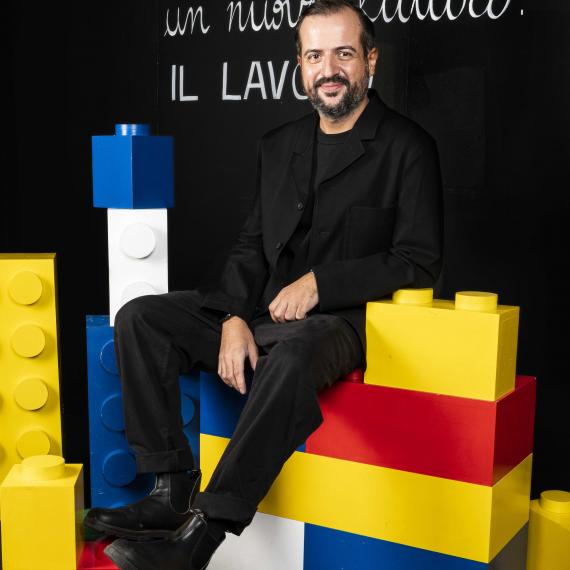Matteo Aloe

Credits Brambilla-Serrani
There’s Cristina Bowerman who’s a failed lawyer; Niko Romito with a degree in Economics; Giuseppe Iannotti who can boast the title of engineer… Matteo Aloe, with his brother Salvatore, arrived in Bologna from his native Catanzaro for the very reason of attending its university. You know how it is for students away from home: money is inversely proportional to the desire to have fun, so they have lots of street food that costs as little as possible, fills up and is a synonym of sociability. Not of good food, though: «I realised I missed a good pizza». So why not put to use a degree in Economics and Marketing with a dissertation on Restaurant Marketing – which by now was completed – and open a pizzeria by the (yeast) book?
This is how the Berberé project was born (it is named after the hot mix used in the Horn of Africa): by chance, study, opportunity, passion. Matteo, born in 1986 and with an obsession for cooking that had already led him to potter about at Scaccomatto, a typical trattoria in town, and also at Pietro Leemann's Joia in Milan, became the patron (though often working in the kitchen, while his brother remains in the shade and works in sales) of a business that has gradually grown and now counts 38 employees: in 2010 the first stop was with restaurant Berberè light pizza &food in Castel Maggiore; the in 2013 came Alce Nero-Berberè in the centre of Bologna; Berberè craft pizza &beer in Florence in September 2014, soon after accomplishing a dream, an internship at Noma in Copenhagen. Which inflamed him: «Many vegetarian dishes, very little meat; a quick service, without frills; new flavours, lots of acidity, freshness and lightness. This is the future of restaurants», that is to say «offer high quality in a democratic way, through pop concepts, accessible to the majority in terms of money and ease». At the end of 2016, the opening in Milan and, a few months later, the first time abroad with Radio Alice in London.
His pizza owes a lot to Beniamino Bilali’s consultancy work, which lasted one year: seasonal, good, sustainable, the result of a constant research on flour, toppings, cooking methods and nutrients, «I call them light e slow because they production is artisanal, only with mother yeast and a fermentation at 26°C for 24 hours. In this way the starch is broken sugars that are easier to digest. All this is included in the large universe of organic food. Real food has to be organic».
Has participated in
Identità Milano
journalist born in 1974, for many years he has covered politics, mostly, and food in his free time. Today he does exactly the opposite and this makes him very happy. As soon as he can, he dives into travels and good food. Identità Golose's editor in chief